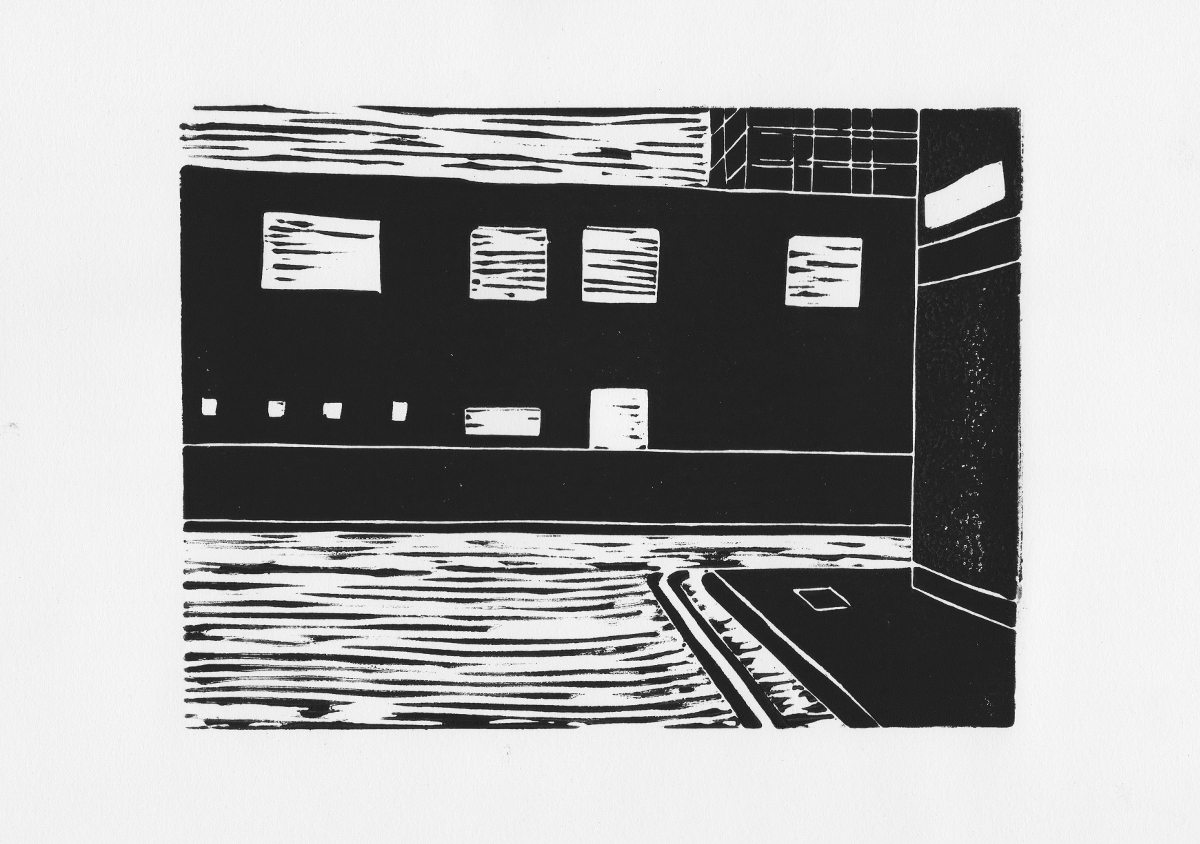--->
De Beauvoir is a series of linocuts that depicts the modernist architecture from a council estate in East London. The De Beauvoir Estate was built in the 1960s on a former industrial land along the South side of Regents Canal. The Estate consists of five high-rise tower blocks, and a number of low-rise tower blocks, interconnected with maisonettes and bungalows. Originally built with a utopian idea of modern living in mind, it soon became apparent that this was going to fail as a project. The new residents were mostly evicted tenants from old Victorian housing stock, with strong community ties going back many years. After relocating they began to feel isolated and misplaced in the towers in the sky.
This break down in community ties, and lack of government support, led to deterioration. The Estate became a synonym of crime and unemployment, thus a dystopian reality was born.
It’s these themes that the artist captures within the prints. By deleting any sign of human life within them, and by focusing on representing the architectural formalism of the buildings, the artist conveys the disregard for the community by the Estate planners and the imposition of form over function. In this way, the series also highlights the dichotomy between the original utopia of hope and the reality of “one box suits all styles of living”. The haunting quality of these works mirrors the general feeling of lost hope that can be felt from the streets surrounding this and many other housing estates across Britain.
Series: De Beauvoir
Signature: Signed and stamp numbered.
Image rights: © Warren Garland
Warren Garland is a visual artist, filmmaker and curator born in Birmingham and based in London. His practice consists of found footage collected from the Internet then reedited, cut out and collaged. He mostly works out of a self-constructed world called Baltia, which is a mythological island base somewhere in the Baltic Sea. This world allows the artist the freedom to maneuver and place himself in a purely fictitious world that parallels the real world of which he parodies, mimics and subverts through magical realist video and sound.
